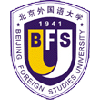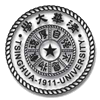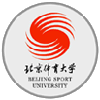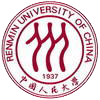Beijing Language and Culture University
Founded in 1962, Beijing Language and Culture University (BLCU)
was BLCU's teachers' dedication and professionalism can also be testified
to by For more than 40 years, BLCU has successfully carried out its aim of "popularizing Chinese language and promoting Chinese culture" and has become the international center for teaching Chinese as a foreign language and a training base for personnel engaged in or concerned with foreign affairs. BLCU has trained some 60,000 foreign students from over 160 countries from around the world to become proficient in Chinese and familiar with Chinese culture. Currently, more than 6,000 international students and over 3,000 Chinese students study at BLCU each year.
Since the advent of reform progress and opening policy, BLCU has made conscientious efforts to optimize its disciplines, update its specialties, create new fields, and develop interdisciplinary subjects. To this end a new rational discipline system has been set up. With a syllabus characterized by multi-level, multi-disciplinary education, BLCU enjoys widespread recognition for its education standards both within China and abroad. Providing a wide range of subjects from short-term, advanced training, intensive programs, to courses for undergraduate studies and degrees for bachelor, master and Ph. D, BLCU is comprised of the following institutions: College of the Chinese Language, College of Humanities and Social Sciences, College of Intensified Chinese Training, Teacher Training College, College of Foreign Languages, College of Continuing Education, Network Education College, Department of Basic Course Education, and Department of Computer Science and Technology. College of Chinese Language Studies The College of Chinese Language Studies was the first teaching institution in China to provide university degree programs for overseas students. Specialized in teaching foreign students Chinese language and culture, it also provides language training for students majoring in Chinese and other non-language programs. The college is comprised of the following departments: Chinese Language and Culture; Chinese Language for Economics and Trade; Bilingual Education and Translation; and the Institute of Teaching Chinese as a Foreign Language. Six majors are offered in this college, including Chinese Language; Chinese Culture; Business Chinese; Teaching Chinese as a Second Language; Chinese and English; and Translation. College of Advanced Chinese Training The College of Advanced Chinese Training specializes in long term Chinese training for overseas students. Its programs include advanced Chinese training for foreign students, preparatory Chinese (for students who are planning to major in natural sciences, engineering, medicine, etc), and Mandarin training for overseas Chinese and people from Hong Kong, Macao and Taiwan. The college has two departments and a training centre: Elementary Chinese Training Department, Intermediate Chinese Training Department and Mandarin Training Center. College of Intensive Chinese Training The College of Intensive Chinese Training is the largest and oldest of its kind in China and is responsible for offering regular and intensive short term Chinese language programs for international students. The college has three departments: Department of Intensive Chinese Study, Department of Advanced Chinese Study, and the Teaching and Research Institute of Accelerated Chinese Study. The Teaching and Research Institute of Accelerated Chinese Study is responsible for the overall design of short term and accelerated Chinese instruction given to foreign students, installation of curricula, study of teaching methods and compilation of textbooks. College for Teachers of Chinese The College for Teachers of Chinese was the first training center approved by the Ministry of Education in China. It is responsible for training Chinese and foreign teachers to teach Chinese as a foreign language. Teaching Chinese as a Foreign Language is a four-year program, but the college also runs a series of study and training courses, including summer courses approved by the Ministry of Education, for both Chinese and foreign teachers. Recently, the college has included new classes, such as Chinese culture for foreign teachers, Chinese Proficiency Test Preparation and Putonghua (Mandarin Chinese) for teachers from Macao. College Proficiency Test (HSK) Center Established in 1989, the Chinese Proficiency Test (HSK) Center is the sole national organization exclusively devoted to Chinese language testing and research. The HSK Center produces and administers the HSK test, a national exam approved by the Ministry of Education. This standardized test is designed to assess the Chinese language proficiency of non-native speakers, including foreigners, overseas Chinese and national minorities, from beginners to advanced levels. This test is a requirement for all overseas students wanting to enter university degree programs in China. Some companies in China may also request HSK test scores to determine a job-candidate's Chinese proficiency. The HSK test development, application, marking and explanation of rating are all standardized. Highly scientific, the statistical analysis of prediction and grading of test papers have been automated. A test-paper bank is now underway to automatically produce test papers. Currently, there are 38 test centers in 19 countries including Japan, the United States, Republic of Korea and 37 test centers in 25 cities in China. On average 30,000 people take the HSK proficiency test each year. Center for Studies of Chinese as Second Language The Center for Studies of Chinese as Second Language aims at promoting the study of disciplinary theory in teaching Chinese as a foreign language, study of the Chinese language, and study of theories in teaching and learning. It is also oriented to train academic personnel, to launch large-scale projects, and to carry out extensive exchange and cooperation with academic circles at home and abroad. The Center consists of the Language Acquisition and Cognition Laboratory, Language Teaching and Testing Office, Language Data Processing Office, and Language Research Office. The Language Acquisition and Cognition Laboratory focuses on the study of the Chinese language in relation to these two areas. The department's aim is to discover processes to eliminate problems and find enabling factors to assist foreigners in the study of the Chinese language. The Language Teaching and Testing Office is mainly engaged in the study of theory and practice in language learning and the study of language proficiency testing. The Language Data Processing Office carries out research in automatic reproduction, processing and application of Chinese information, including the study of electronic Chinese dictionaries, construction and the study of language data banks, and the study of computer-aided teaching systems and multi-media software for language teaching. The Chinese Language Research Center engages itself in the study of Chinese language, including the historical aspects and modern forms of the Chinese language and characters.
Well known for having the largest scope and longest history in the field of teaching Chinese language and culture to foreigners, BLCU boasts a wide array of qualified, distinguished and experienced teachers. Of all the teachers in China who hold the official certificate for teaching Chinese to foreigners, one third teaches at BLCU. The university has over 800 teachers and faculty members, approximately 300 professors and associate professors, including many distinguished scholars with 20 to 30 years of teaching experience. In addition, quite a number of BLCU's teachers have been to foreign countries to teach Chinese, carry out research, or participate in academic exchange. The teaching staff is devoted to the cause of teaching Chinese as a Foreign Language and research in the areas of Chinese language, teaching methodology, and contrastive studies between Chinese language and other foreign languages. Sharing their accumulated rich experiences, various teaching materials have been compiled, which have been well received by students from diverse backgrounds.
Library BLCU has modern facilities, which includes a state-of-the-art computer-assisted language learning facility, computer labs with Internet access, libraries and more. With a total floor space of 10,000 square meters, the Library holds 700,000 volumes of books and journals of various kinds, most of which are publications on Chinese language, linguistics and culture, followed by books on humanities, finance, computers, and natural science. The library is rated as a top library for specialized research. The library is endowed with various modern facilities, such as an audio-visual reading room, a language laboratory, as well as a multi-media reading room. Because of its effective utilization of various multimedia and audio-visual equipment and electronic publications, BLCU's library network and automation development is rated as class "A" among university libraries in Beijing. The library has the following sections: Acquisition and Cataloguing; Circulation and Reading; Magazine & Newspapers; Information; and a library branch. The library also provides services such as book lending, literature and intelligence consulting, copying services and internet access. Students can make use of the study room or read books and newspapers in the reading room. There is also a photocopying room with fax services. Recreation Facilities Apart from the new Recreation Centre with indoor courts, work-out gym, and swimming pool, the university also has grounds for playing football, basketball, volleyball, table tennis, batting practice, etc. Students can rent various kinds of equipment with their student ID card. Laundry Dry cleaning and bulk laundry service is available on campus. Those staying in dorms can also wash their clothes in coin-operated washing machines. Money & Banking The Industrial and Commercial Bank of China (ICBC) is located
inside the University. The bank provides currency exchange, deposits,
remittance services and also accepts credit cards and travelers
cheques. Other banks, such as the Bank of China and the Agriculture
Bank of China, are located nearby outside of the campus. Medical Care The university hospital is located near the southwest gate of the university. Students can see doctors at the hospital with their student cards. The registration fee is RMB 2 for an ordinary case and RMB 4 for an emergency case. Each individual shall pay for his/her own medicine prescription. Extra payment shall be made for inviting doctors for house calls. Patients suffering from serious illness can go to the Peking University's Third Hospital, the Chinese-Japanese Friendship Hospital or the ISOS Clinic where special outpatient services and wards are provided for foreigners. Food & Groceries There are many university operated cafeterias within the school grounds offering both Chinese and Western food for students. There is also a special restaurant catering to Islamic students. A meal generally ranges from 5 to 25 RMB per person depending on what and where you eat. There are also many restaurants around campus offering Chinese,
Japanese, Korean and Western cuisines. The cost of eating at restaurants
is generally a little pricier than eating at school cafeterias,
but is still relatively affordable. In addition, restaurants have
longer service times and have a greater variety of delicious foods
to choose from. Postal Services A post office is centrally located within the campus grounds.
It handles mail and parcels, and sells stamps and envelopes.
BLCU campus accommodation offers single and double occupancy rooms. Each room is equipped with toilet, telephone, refrigerator, television, air-conditioning, central heating system, 24 hours hot water, bed, desk, chair and desk-lamp. Electricity and water are included in the accommodation. The cost of outgoing telephone calls and internet usage are to be paid by students.
The BLCU campus is located in Beijing's convenient Haidian District BLCU is 15 kilometers away from Tian' anmen Square and the Forbidden City, 35 kilometers away from the Capital Airport, 20 kilometers away from the Beijing Railway Station and 12 kilometers from the Beijing West Railway Station. From the airport to the university: 1 hour by car From the train station to the university: 30 minutes by car |

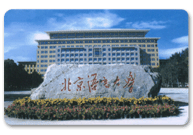 originally named the Higher Preparatory School for Foreign
Students. In 1964, it was renamed Beijing Language Institute.
Then in 1996, with the approval of the Ministry of Education, the
school was designated as the Beijing Language and Culture University.
BLCU is the only international university in China with the main
task of teaching Chinese language and culture to foreign students.
In addition, BLCU also provides teaching in the following disciplines: computer science and technology, humanities and social science,
finance, and training native and foreign teachers to teach Chinese
as a second language.
originally named the Higher Preparatory School for Foreign
Students. In 1964, it was renamed Beijing Language Institute.
Then in 1996, with the approval of the Ministry of Education, the
school was designated as the Beijing Language and Culture University.
BLCU is the only international university in China with the main
task of teaching Chinese language and culture to foreign students.
In addition, BLCU also provides teaching in the following disciplines: computer science and technology, humanities and social science,
finance, and training native and foreign teachers to teach Chinese
as a second language. 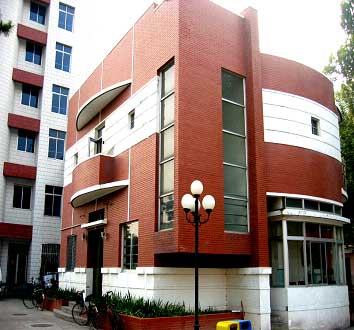 the achievements of BLCU graduates. Many of them have become
renowned scholars in the field of Chinese studies. Since 1990,
fourteen BLCU alumni have come back to Beijing as ambassadors or
ministers of their perspective countries. Some BLCU graduates
are currently serving the heads of their governments as personal
aides and interpreters. BLCU has long held a leadership position
in Chinese language education. Its alumni network covers more
than 160 countries. BLCU graduates are well known for their sound
Chinese language competence and solid knowledge of Chinese culture
and society.
the achievements of BLCU graduates. Many of them have become
renowned scholars in the field of Chinese studies. Since 1990,
fourteen BLCU alumni have come back to Beijing as ambassadors or
ministers of their perspective countries. Some BLCU graduates
are currently serving the heads of their governments as personal
aides and interpreters. BLCU has long held a leadership position
in Chinese language education. Its alumni network covers more
than 160 countries. BLCU graduates are well known for their sound
Chinese language competence and solid knowledge of Chinese culture
and society. 